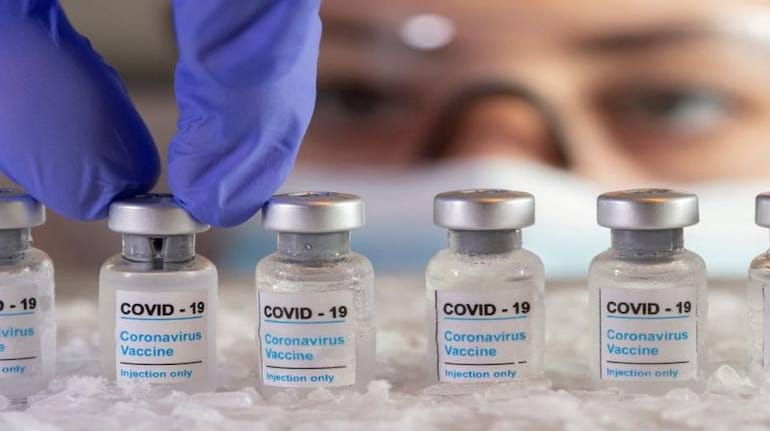



India has the capacity to produce vaccines not only for its own population but even for the other developing nations, and may emerge as the world's second largest COVID-19 vaccine maker, say analysts.
Prior to COVID-19 pandemic, India had been producing 60 percent of the world's vaccines for various diseases at an affordable rate, reported CNBC. "India has been a manufacturing hub for vaccines … even before the pandemic, and should therefore be a strategic partner in the global inoculation against COVID-19," the business news site quoted JPMorgan analysts' report published in January.
Another consulting firm, Deloitte, has predicted that India will emerge as the second largest vaccine maker after the US. Deloitte India's partner PS Easwaran said India may produce over 3.5 billion COVID-19 vaccines in 2021, compared to the US's 4 billion.
COVID-19 Vaccine Tracker: Over 82 lakh people have received the jab in India
Meanwhile, pharmaceutical firms have scaled up the production in India. "We are expanding our annualised capacities to deliver 700 million doses of our intramuscular COVAXIN," CNBC quoted Bharat Biotech as saying, which has developed COVID-19 vaccine along with the Indian Council of Medical Research.
However, COVAXIN has suffered some backlash due to the lack of transparency in providing efficient data.
India's vaccines for developing nations:
Apart from Bharat Biotech, Pune-based Serum Institute of India (SII) had collaborated with AstraZeneca and the University of Oxford and developed Covishield. This vaccine has been granted emergency approval in India.
Adar Poonawallla's SII claims to produce around 50 million vaccines per month and is planning to raise the production to 100 million doses a month by next month.
US pharma firm Johnson & Johnson and Russian Direct Investment Fund have agreed to produce COVID-19 vaccines with Indian firms, however, they have not received approved for use as of yet.
"Even without successful vaccine development from their own pipelines, available capacity provides opportunity to partner as contract manufacturers with approved vaccine developers to meet supply needs particularly for India and other [emerging markets],” said the JPMorgan report quoted earlier.
Public Health Foundation of India's (PHFI's) President K Srinath Reddy opined India's vaccines may be more suitable for developing countries, unlike that of Moderna and Pfizer-BioNTech. Citing the reason for this, Reddy said the cold storage requirements for Pfizer and Moderna will restrain developing nations to buy vaccines from these pharma giants.
On the contrary, the PHFI President said vaccines made in India are not only affordable and easier to transport, but also require less cold refrigeration measures. This gives more advantage to Indian vaccines than those made in the US and Europe.
India's capability:
Recent examples of India sending vaccines to Sri Lanka, Maldives, Bhutan, Nepal and other countries, apart from vaccinating its own people has proven India's capability to provide vaccines to other nations. Till now it has already supplied 15.6 million doses to 17 countries, Reuters reported.
"India’s manufacturing capabilities are sufficient to meet domestic demand," CNBC quoted the Centre for Public Policy Research (CPPR) Senior Research Associate Nissy Solomon as saying.
"With a proven track record on the scale at which vaccines are produced, India should be able to ramp up production to meet international demand as well," she added.
Vaccine distribution/storage:
Looking at the current pace with which people in India are being vaccinated, Jefferies Equity Analyst Abhishek Sharma noted only 22 percent of India’s 1.38 billion population can be vaccinated in a year.
Among other major issues is the lack of storage, distribution and vaccine uptake. Though the Indian government claims to vaccinate more and more people, a survey shows that 'more than half of Indians are reluctant to get vaccinated immediately'.
The PHFI President, too, said if the issue of storage and distribution for vaccines could be taken care of, immunisation programmes may gain momentum. He suggested that existing cold chain for food products could be used for vaccine storage, as Indian vaccines require normal refrigeration, unlike Pfizer-BioNTech (minus 70 degrees Celsius) or Moderna (minus 20 degrees Celsius).
Discover the latest Business News, Sensex, and Nifty updates. Obtain Personal Finance insights, tax queries, and expert opinions on Moneycontrol or download the Moneycontrol App to stay updated!
Find the best of Al News in one place, specially curated for you every weekend.
Stay on top of the latest tech trends and biggest startup news.